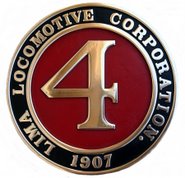 My culinary skills were put to work for the first time since joining the El Dorado Western Railway. Although my occasional meals please its volunteers, they're a side benefit. Demonstration railroads don't need a cook to renovate locomotives and rolling stock.
My culinary skills were put to work for the first time since joining the El Dorado Western Railway. Although my occasional meals please its volunteers, they're a side benefit. Demonstration railroads don't need a cook to renovate locomotives and rolling stock.I was asked to check a standard home oven at the engine house last Saturday. Machinist Sam Thompson wanted to use the oven to pre-heat three cast iron valves for the Diamond and Caldor No. 4 Shay locomotive.
At about 9 a.m., I watched welder Harold Tilton wheel the oven into the engine house on a hand truck. He planned to plug it into the shop's 240-volt receptacle, which is normally used to power the electric arc welder.
Other than a mental note, the fact that Harold was moving the oven didn't register in my brain. Acquired several years ago, the oven hadn't been used to date. I have often though that it could be become the centerpiece of a shop kitchen.
 "I had just sat down to preview photographs of the morning's activities when I heard my name.
"I had just sat down to preview photographs of the morning's activities when I heard my name.Where's the oven man?" called Harold. "We need the cook."
I walked into the engine house and looked at the oven, which was set up in the narrow isle between the 39-ton locomotive and a tool cabinet.
"All I can do is to play with the dial." I explained to Harold that my next move has always been to call the kitchen maintenance man in to repair the problem.
As I walked up to the oven, I saw Bill Rodgers, the railway "kitchen maintenance" man, at work. Once we determined that the oven had no power, Bill quickly assessed that the wrong receptacle was connected to the 240-volt power supply.
 Bill is our millwright, a jack-of-all-trades shop maintenance man. We've come to depend on his capability to repair almost any piece of shop equipment, including older General Electric electric ovens.
Bill is our millwright, a jack-of-all-trades shop maintenance man. We've come to depend on his capability to repair almost any piece of shop equipment, including older General Electric electric ovens.Once Bill repaired the oven, I asked Sam (pictured above, watching Bill repair the receptacle) what he planned to "cook" in the oven.
"As you know," explained Sam, cast iron cracks when intense, local heat is applied to the cold metal. Instead, Sam set the cold valves inside a cold oven. He then turned the oven dial to about 250 degrees.
Once hot, Harold removed each valve one-by-one and braized a layer of brass on each side of the valve. Sam will later machine the valves to the proper specification.
I may use the oven as long as Sam doesn't intend on cooking toxic compounds inside it. The oven and rangetop will come in handy this winter during inclement weather.
There's no reason we can't mix some harmless metallurgy with a bit of precision bread baking in the engine house.


No comments:
Post a Comment